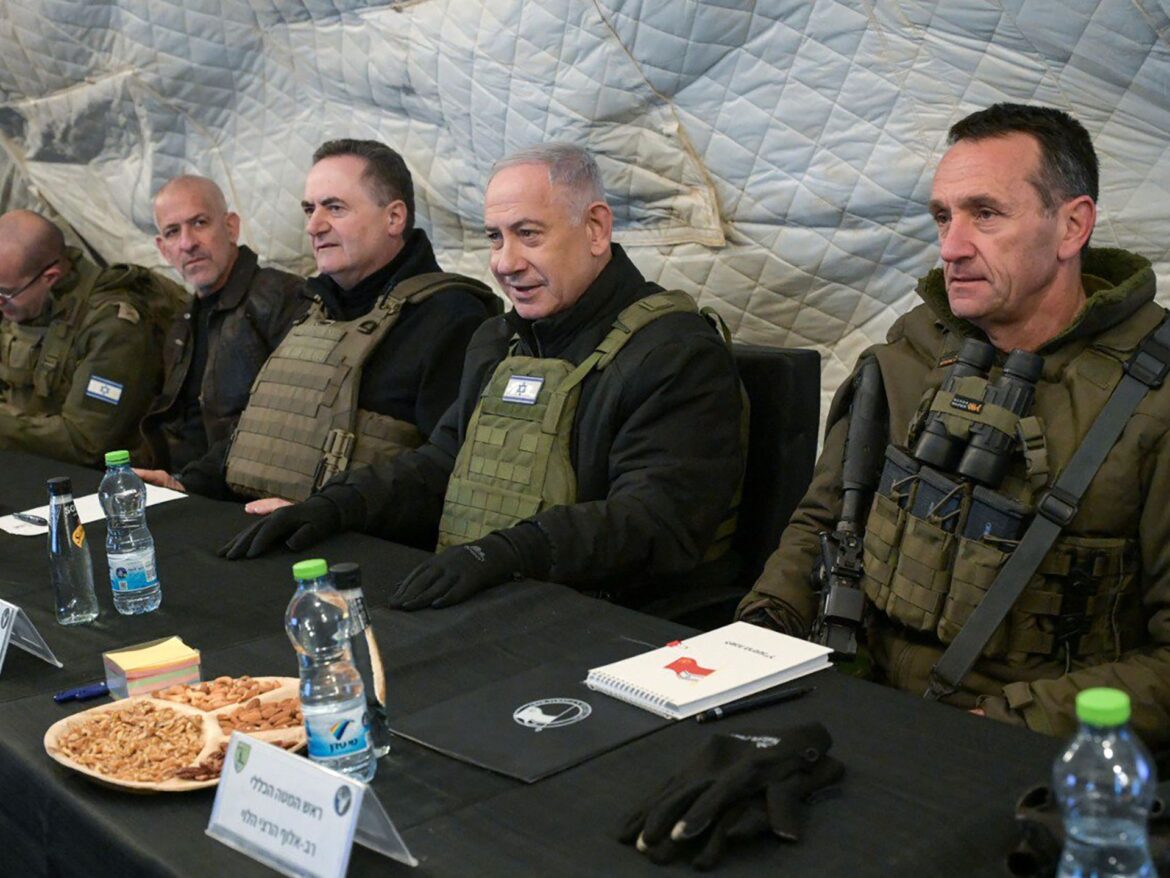Officials in the Israeli negotiating team accused Prime Minister Benjamin Netanyahu and Defense Minister Israel Katz, on Wednesday, of making statements that harm the prisoner exchange negotiations with the Islamic Resistance Movement (Hamas).
Earlier Wednesday, Katz said, during a visit to the Israeli-occupied Philadelphia axis on the border between the Gaza Strip and Egypt, that “security control over Gaza will remain in Israel’s hands, and there will be security spaces, buffer zones, and control sites in the Strip.”
On Friday, Netanyahu told the American newspaper The Wall Street Journal that the war will continue until Hamas is completely eliminated, indicating that “Israel will not accept its presence on its borders.”
In response to this, Yedioth Ahronoth newspaper quoted unnamed officials in the Israeli negotiating team as saying that hearing the Defense Minister’s statements on the Philadelphia axis would set off the negotiations.
The officials said that if a deal is not reached soon, the army will find it difficult to find new areas for maneuver. They noted that the deal has reached its final stages, but the officials’ statements have caused great damage.
The officials added that we are in the days of making critical decisions, in which the list of abductees (detainees in Gaza) must be received, and these are days that require flexibility and good faith.
The officials in the Israeli negotiating team addressed Netanyahu and Katz and said, “Do not take this decisive point and announce that you will not end the war, and that the army will control Gaza.”
In turn, Netanyahu’s office responded, in a statement, to these statements and said that they were “another false echo of Hamas propaganda from unknown sources in the negotiating team who are acting based on a political agenda.”
The office confirmed that Netanyahu is committed to returning all the kidnapped people to their homeland, and achieving other goals of the war in Gaza, including eliminating Hamas and ensuring that Gaza does not pose a threat to Israel in the future, according to what Netanyahu has repeatedly announced.
Netanyahu’s office called on the negotiators to “focus on the sacred task of returning the kidnapped people, and to stop playing into the hands of the terrorist organization Hamas,” according to the statement’s description.
The Israeli negotiating team consists of senior officials in the two intelligence services: Mossad and General Security (Shin Bet), in addition to the army.
Mutual accusations
Hamas said that the negotiations in Doha, with Qatari and Egyptian mediation, were proceeding seriously.
The movement added, in a statement, that it showed responsibility and flexibility, but the Israeli occupation imposed new issues and conditions related to withdrawal, ceasefire, prisoners, and the return of the displaced, which postponed reaching the agreement that was available.
For his part, the office of Israeli Prime Minister Benjamin Netanyahu said, in another statement, that it was Hamas that backed away from the understandings reached and continues to create obstacles in the negotiations.
The statement added that Israel will continue its tireless efforts to return all the abductees, as the statement described.
Commenting on the exchange of accusations between Israel and Hamas regarding the delay in reaching an exchange deal, the Israeli Broadcasting Authority quoted opposition leader Yair Lapid as saying that he had no expectations from a “terrorist organization,” and that Netanyahu did not really want to reach a deal.
For his part, Israeli President Isaac Herzog on Wednesday urged the government to do its utmost to reach an agreement that would allow the release of the “hostages” who are still being held in the Gaza Strip.
Herzog, whose position is largely symbolic, said in a statement, “I call on our leadership to work with all its might and with all the means at our disposal to reach an agreement.”
On Tuesday evening, the Israeli negotiating delegation returned from Qatar to conduct internal consultations after a week of negotiations to conclude a prisoner exchange deal and a ceasefire in Gaza.
Prisoner exchange negotiations conducted with Qatari, Egyptian and American mediation have faltered more than once, as a result of Netanyahu’s insistence on continuing control over the Philadelphia border axis between Gaza and Egypt, and the Rafah crossing in Gaza, and preventing the return of Palestinian faction fighters to northern Gaza by searching the returnees through the Netzarim corridor in the middle of the Strip.
Tel Aviv holds more than 10,300 Palestinians in its prisons, and estimates that there are 100 Israeli prisoners in the Gaza Strip, while Hamas announced that dozens of its prisoners were killed in random Israeli raids.
Since October 7, 2023, Israel, with American support, has launched a genocide against Gaza that has resulted in more than 153,000 Palestinian martyrs and wounded, most of them children and women, and more than 11,000 missing persons, amid massive destruction and famine that killed dozens of children and the elderly, in one of the worst humanitarian disasters. In the world.



